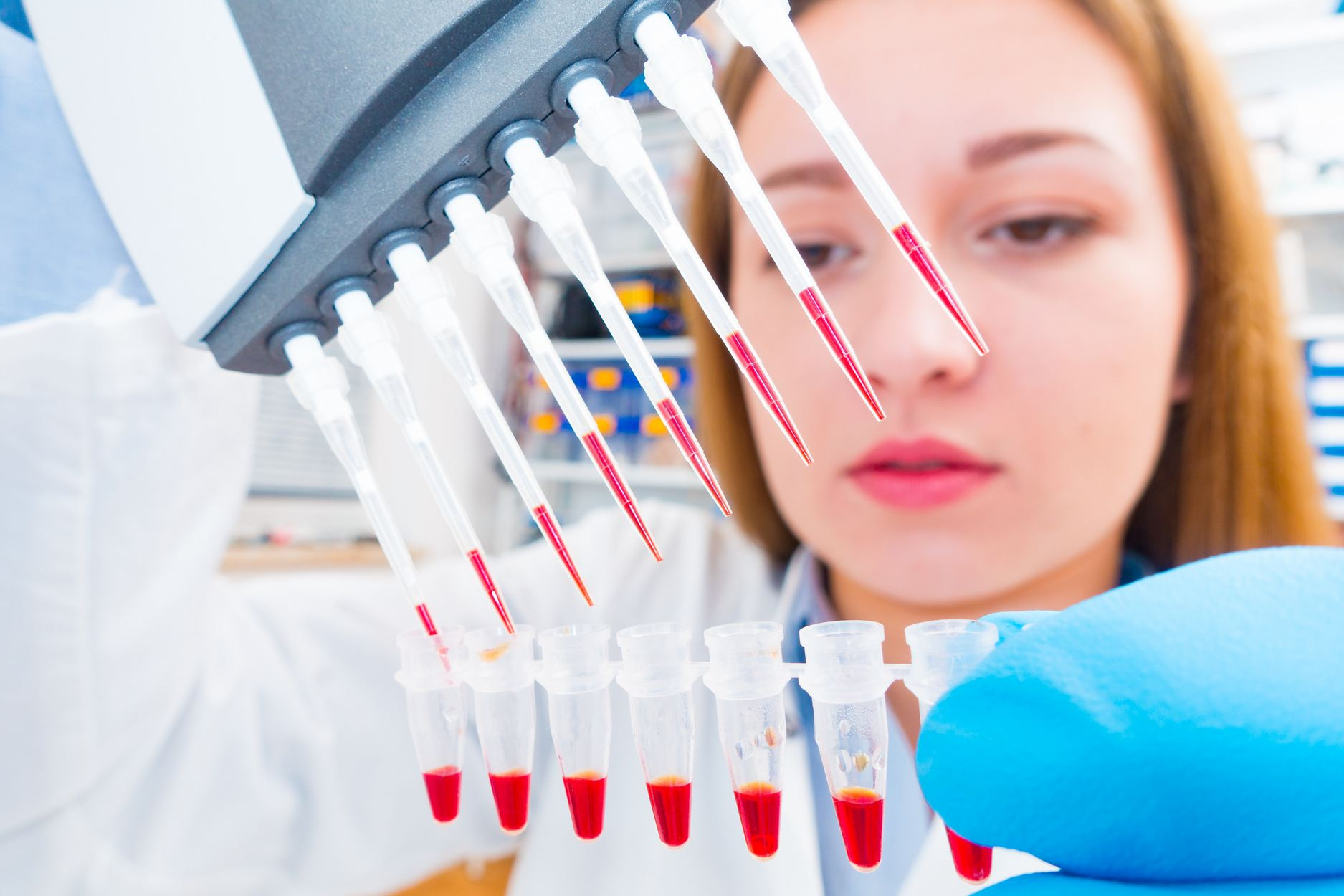Despite significant progress, cancer continues to be the second-leading cause of death in the U.S. More than 2 million new cases of cancer are likely to be diagnosed in the U.S. this year. More than 618,000 deaths are expected from cancer in 2025.
There's also a huge financial cost that's growing rapidly. In 2020, treating cancer in the U.S. cost roughly $200 billion. By 2030, the total is projected to increase to more than $245 billion.
But with every problem comes an opportunity -- in this case, a massive opportunity to put your dollars to work to help the large and small companies that are developing new ways of diagnosing and treating cancer. Here's what you need to know about some of the leading cancer-focused healthcare stocks that investors should consider.

Top cancer stocks
Cancer stocks include drugmakers that focus on developing cancer therapies and companies that develop products used in screening for cancer. Some of these stocks are highly volatile, such as early-stage biotech stocks. Others, though, are more established and less risky. Here are four top cancer stocks to consider that include both small and large companies:
| Name and ticker | Market cap | Dividend yield | Industry |
|---|---|---|---|
| Guardant Health (NASDAQ:GH) | $14.3 billion | 0.00% | Healthcare Providers and Services |
| Illumina (NASDAQ:ILMN) | $21.6 billion | 0.00% | Life Sciences Tools and Services |
| Pfizer (NYSE:PFE) | $144.9 billion | 6.75% | Pharmaceuticals |
| Summit Therapeutics (NASDAQ:SMMT) | $14.6 billion | 0.00% | Biotechnology |
1. Guardant Health

NASDAQ: GH
Key Data Points
Guardant Health (GH +1.31%) stands out as a pioneer in liquid biopsy, a blood test that detects tiny amounts of DNA that have broken away from tumor cells.
The company first achieved success with its Guardant360 product, a liquid biopsy used to help determine the appropriate therapy for cancer patients. The Guardant360 CDx product is the first liquid biopsy approved by the U.S. Food and Drug Administration (FDA) for all advanced solid tumors. It's also used as a companion diagnostic to identify patients with non-small cell lung cancer (NSCLC) who could potentially benefit from treatment with AstraZeneca's (AZN +0.68%) Tagrisso, Johnson & Johnson's (JNJ -0.66%) Rybrevant, or Amgen's (AMGN -1.22%) Lumakras.
Guardant Health also offers a tissue biopsy product, Guardant360 TissueNext, designed to be ordered with the Guardant360 CDx test. Its Guardant360 Response test helps doctors determine if a cancer therapy is working with patients. In addition, Guardant Health markets Guardant Reveal, the first blood-only test that can detect residual and recurrent cancer in less than two weeks without requiring a tissue biopsy.
The company's total addressable market in cancer treatment selection and recurrence monitoring is about $30 billion per year. However, Guardant Health has a much larger market opportunity of $50 billion annually in the U.S. alone for early-stage cancer detection.
Guardant Health won U.S. Food and Drug Administration (FDA) approval for its Shield blood test for screening colorectal cancer in July 2024. The company hopes to expand Shield to include lung cancer as the next step in its goal to have a multicancer early-stage test.
2. Illumina

NASDAQ: ILMN
Key Data Points
Gene-sequencing giant Illumina (ILMN -3.26%) is also a major competitor in the cancer therapy selection market. Its TruSight companion diagnostic tests are used by several biopharmaceutical companies, including Bristol Myers Squibb (BMY +0.05%) and Merck (MRK -0.41%).
Illumina spun off Grail (GRAL +2.10%), which develops liquid biopsy products, in June 2024. However, the company still owns a 14.5% stake in Grail.
Arguably the greatest value provided by Illumina in the fight against cancer is the use of its gene-sequencing systems by researchers around the world. More than 22,000 Illumina systems are installed worldwide.
Of course, genomic sequencing isn't just important in cancer research. Illumina's technology is used in a wide range of areas, including researching genetic and infectious diseases, non-invasive prenatal testing, drug discovery, and proteomics (the large-scale study of proteins).
3. Pfizer

NYSE: PFE
Key Data Points
Pfizer (PFE +0.75%) currently markets four blockbuster oncology therapies -- breast cancer drug Ibrance, prostate cancer drug Xtandi, bladder cancer drug Padcev, and blood cancer drug Adcetris. The company also has eight other cancer drugs that generate annual sales of at least $100 million.
Cancer is also a top focus for Pfizer's pipeline. The drugmaker has more than 50 oncology programs in clinical testing. While several of these programs are targeting additional indications for drugs that have already been approved, Pfizer also has promising new candidates, including experimental breast cancer drug atirmociclib.
The pharma giant has also used its large cash stockpile for key acquisitions that bolster its oncology prospects. For example, Pfizer acquired Trillium Therapeutics in 2021 to obtain its blood cancer programs and acquired Seagen, a leader in developing antibody-drug conjugates targeting cancer, in 2023.
Pfizer's success doesn't hinge entirely on its oncology products and pipeline, though. For example, the company is a leader in the migraine therapy market, with Nurtec ODT delivering strong sales growth.
4. Summit Therapeutics

NASDAQ: SMMT
Key Data Points
Unlike Pfizer, Summit Therapeutics doesn't have any approved products on the market. As a clinical-stage biotech company, Summit could be riskier than more established drugmakers.
However, Summit claims one of the most promising candidates in development -- ivonescimab. In May 2024, ivonescimab achieved better progression-free survival in patients with non-small cell lung cancer than Merck's Keytruda in a late-stage study conducted in China. Keytruda was the world's highest-grossing drug in 2024, with sales of almost $29.5 billion.
In October 2024, Summit completed enrollment in a global phase 3 clinical study evaluating ivonescimab as a second-line treatment for NSCLC. The company is also conducting late-stage studies of the drug as a monotherapy and in combination with chemotherapy as a first-line treatment for NSCLC.
There's no guarantee that ivonescimab will be successful in late-stage studies and win regulatory approvals. If the drug can achieve its potential, though, Summit Therapeutics could be a much bigger company a few years from now.
Why invest in cancer stocks?
The main purpose of investing in any stock is to generate positive returns. Many cancer stocks offer an opportunity to achieve this goal.
Millions of people across the world have cancer. Millions more are diagnosed with cancer each year. Companies that develop effective cancer diagnostic tools and therapies can generate significant revenue and profits. Their stocks can deliver attractive returns over the long term.
Benefits and risks of investing in cancer stocks
The benefits of investing in cancer stocks include:
- Potential for significant long-term returns
- Relatively recession-resistant investment alternatives
- Allows investing in a way that could help save lives
However, there are also risks of investing in cancer stocks, such as:
- Volatility
- The potential for losses, especially with clinical-stage drugmakers
How to evaluate cancer stocks
Factors to consider when evaluating cancer stocks include:
- Financial strength
- Look for stocks with a return on equity of 15% or more.
- Look for low debt levels and debt ratios using the company's balance sheet.
- Valuation
- Compare the company's price-to-earnings (P/E) ratio against the earnings multiples of peers.
- Growth prospects
- Check out Wall Street analysts' growth projections.
- Review sales growth trends of the company's products versus rival products.
- Review the company's development pipeline.
Related investing topics
How to invest in cancer stocks
Follow these steps to invest in cancer stocks:
- Open your brokerage app: Log in to your brokerage account where you handle your investments.
- Search for the stock: Enter the ticker or company name into the search bar to bring up the stock's trading page.
- Decide how many shares to buy: Consider your investment goals and how much of your portfolio you want to allocate to this stock.
- Select order type: Choose between a market order to buy at the current price or a limit order to specify the maximum price you're willing to pay.
- Submit your order: Confirm the details and submit your buy order.
- Review your purchase: Check your portfolio to ensure your order was filled as expected and adjust your investment strategy accordingly.













